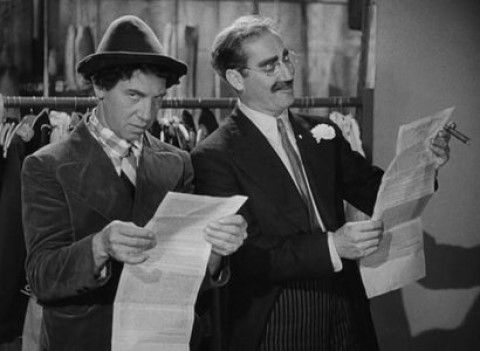What is the earnest money contract?
We explain what a deposit contract is, the types of deposit contracts that exist, what information they should contain and what is the recommended down payment and deposit when buying a property.
If you are thinking of SELL YOUR HOUSEyou have probably heard of the earnest money contract. A contract which, although not compulsory, is a way of ensuring, by means of a reservation, the interest of both parties (seller and buyer) in carrying out the transaction. That said, the earnest money contract is much more than just collecting money for peace of mind; it is a document in which some of the aspects that will later form part of the purchase contract are reflected.

Types of Deposit Agreements
Before we talk about the types of earnest money contracts that exist, we would like to explain what the earnest money contract is. This is a private agreement between seller and buyer that is signed prior to the contract of sale.. To put it bluntly: it is a firm reservation of ownership which demonstrates that there is real interest on both sides.
What is the earnest money contract and which ones can we find? There are three types of earnest money contracts:
- Penitential arras. They involve accepting the delivery of a deposit (or deposit) as a reservation of the property. This money also serves as compensation if one of the parties breaks the contract. If it is the buyer who does so, he will lose the deposit. If it is the seller, it must be returned in duplicate.
- Confirmatory pledges. Here, too, a deposit is given, but this does not function as compensation. However, it is possible to add a clause indicating the penalties in case of breaking the contract. However, this would have to go to court for a judge to decide.
- Criminal arras. As with the penitential deposit, the deposit serves as compensation if the contract does not go ahead. It is the most protected contract of the three, as not only is the deposit money penalised, but also, if the seller fails to fulfil the contract, the buyer can sue the seller to ensure the purchase.
What should an earnest money contract contain?
Now that we know the different types of earnest money contracts, it is time to know what information they should contain. Although some elements will vary depending on the model (such as the clauses indicating penalties), there is general information that they all share:
- Identification data. Both the seller and the buyer must provide their full name, as well as their CIF or DNI (depending on whether they are a company or an individual). If there are several owners, all of them must be included in the earnest money contract.
- Location of the dwelling. Just as in a rental or sales contract, the property must be clearly located in this one. For this reason, the address, town, postcode, etc. must be indicated in detail.
- Important detailsThe property is also included in the property description, as well as a detailed description of the technical characteristics of the property. For example, useful and constructed square metres, number of bedrooms, number of bathrooms, if there is a storage room and parking space attached, if it has a terrace, if it has central or individual heating, and all the details considered interesting. For example, if there are built-in wardrobes or electrical appliances in the kitchen.
- Include a simple note from the land registry office to find out if there are any encumbrances on the dwelling.
- Price for sale and purchase. It is advisable to include the method of payment to avoid problems.
- Cost sharing. There are a number of costs for the purchase and sale of a propertysuch as the public deed at the notary's office or registering the property in the land registry. It is important to specify who will be responsible for each expense.
- Arras. The deposit or down payment must also be reflected. Normally they are 10% of the final price, but please note that they will be deducted from the final payment.
- Specify what type of arras they are. As we have seen above, there are three different types with different consequences.
- Deadlines. So that the sale does not take forever, it is normal to establish a maximum time limit for signing the deed of sale before a notary, as well as the date on which the keys will be handed over.
- Date, signature and addresses for notifications. Finally, do not forget to date and sign the document to validate it. If the address for notifications is different from the one that appears in the header of the contract, you should also indicate it.

Down payment for the purchase of a home
The down payment for the purchase of a house is not fixed by law.. In other words, we are free to decide how much money is to be given as a deposit. However, this must be agreed between both parties.
As indicated above, Typically, around 10% of the total sale value is delivered as a down payment, but this need not necessarily be the case.. The art of negotiation is always involved and the important thing is that both the seller and the buyer are happy and satisfied with the signal that is delivered. This is always a good prelude to a transaction involving the purchase and sale of a property, which is highly financially (and often emotionally) involved. It is always better to lower the amount a little, if this helps the buyer. In this way, the agreement will be as amicable as possible.
What is the earnest money contract? As you can see, it is an effective method for securing the sale of a property.. But it is important not to confuse a deposit contract with a reservation contract.. While earnest money contracts are legally regulated, this is not the case for reservation contracts. In fact, a reservation contract does not oblige either party to buy or sell and the deposit is normally returned without penalty..
We hope that this article has resolved your doubts about this type of contract, which is always useful for both the seller and the buyer. If this is not the case, don't worry: at Monapart We will be happy to advise you, both on the rental as in the sale of your property.
If you are thinking of selling your home, you have probably heard of the earnest money contract: a way of ensuring, by means of a reservation, the interest of both parties (seller and buyer) in carrying out the transaction. We explain what an earnest money contract is, the types of earnest money contracts that exist, what information they should contain and what is the recommended down payment and deposit when buying a home.


